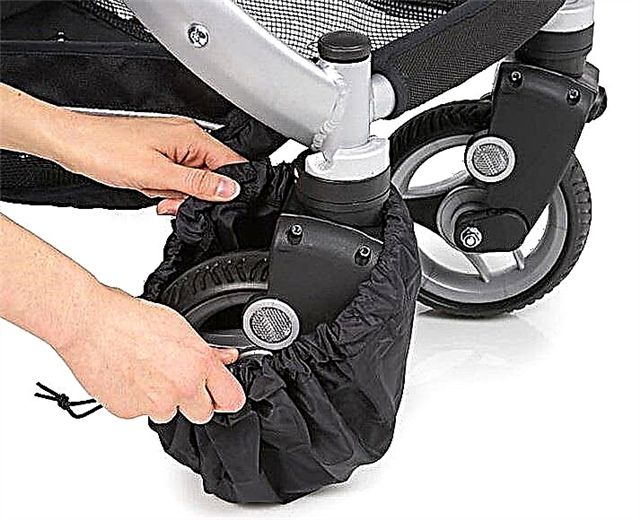
To normalize blood flow in the brain tissues, doctors often prescribe Cavinton. Such a drug is in demand for neurological and mental pathologies, as well as in the practice of ENT doctors and ophthalmologists, as it helps to normalize hearing and vision. But is it possible to give it to children under one year old and how to take Cavinton correctly in childhood?

Release form
Cavinton is produced in the following variants:
- Tablets with an active substance content of 5 mg (50 pieces in one pack) or 10 mg (Cavinton forte tablets, 30 or 90 pieces in a pack).
- Ampoules... They are available in different capacities - 2 ml and 5 ml (10 ampoules per pack), as well as 10 ml (5 ampoules per pack). One milliliter of this form of release contains 5 mg of active ingredient.

Cavinton does not have such a form of release as syrup.
Composition
The active ingredient in this Hungarian preparation is vinpocetine... In tablet form, this compound is supplemented with lactose monohydrate, corn starch and silicon dioxide, as well as magnesium stearate and talc. Ampoules, in addition to vinpocetine, contain water, ascorbic and tartaric acid, sodium disulfite, as well as sorbitol and benzyl alcohol.
Operating principle
The drug dilates blood vessels in the brain, increasing blood flow to its tissues, so that the brain receives the amount of oxygen it needs. In addition, the supply of nutrients to the nerve tissues also increases. As a result, metabolic processes are improved in the brain, and blood clots and clots do not form. This has a positive effect on mental performance, attention and memorization. Also, the use of Cavinton stimulates the formation of neurotransmitters and protects brain tissue from various harmful factors, for example, free radicals.

Can I give to children
The instructions for use of Cavinton contain information that such a medicine is not given to children under 18 years of age. It is more often prescribed to elderly people, for example, electrophoresis with Cavinton is performed on the cervical spine, glaucoma or atherosclerosis are treated.
However, many neurologists prescribe this drug even at an early age, for example, at 2 months. They base such a decision on their own experience and necessarily take into account all the risks, claiming that there are diseases in which Cavinton has shown high efficiency and its use brings more benefits than harm. Since such pathologies can be diagnosed even in children aged 3 months or 1 year, Cavinton can be prescribed by doctors to an infant.
How nootropic drugs, to which Cavinton belongs, affect brain activity, says Doctor of Medical Sciences, Professor, neurologist N. Schneider:
Dr. Komarovsky calls this medicine quite effective. He notes that Cavinton can be used for a long time if the child has indications for prescribing this medication, and the dose is selected by the doctor. How the dosage of Cavinton and other drugs should be correctly selected, see below:
Indications
The appointment of Cavinton in childhood is justified in such situations:
- If the child is diagnosed with encephalopathy. Especially often, such a pathology is provoked by hypoxia during childbirth or birth trauma to the head, but it can also be in schoolchildren or adolescents. The disease manifests itself as dizziness, sleep problems, memory impairments, inattention, frequent headaches, and other symptoms. The appointment of Cavinton helps to restore the work of brain tissues that have suffered a lack of oxygen. Without its use, the child may have changes for the rest of his life.
- If the baby has hearing loss. Cavinton is included in the complex of medicines to combat this problem. It improves the blood supply to nerve tissues and prevents the vessels in the brain from spasming, therefore it is effective both for vascular lesions and for toxic effects on the ear.
- If there is an increased risk of developing seizures after a brain injury. Cavinton in these children helps prevent seizures.
- If the child has vision problems associated with blood vessels.
- As an additional drug in the treatment of epilepsy. In children with this condition, the use of Cavinton can reduce the severity of the seizures and also lengthen the periods between attacks.

Contraindications
Cavinton should not be taken if:
- Hypersensitivity to any component of the medication.
- Hemorrhagic stroke.
- Arrhythmias.
- Kidney disease.
- Liver pathologies.
Children under the age of 18 are also a contraindication to the use of Cavinton. This is indicated in the instructions for the medicine, therefore, only a doctor should prescribe Cavinton at 1 year old, at 8 years old or children of a different age.
Side effects
In most cases, the drug is well tolerated and does not cause any side effects. Very rarely, the drug provokes sleep disturbances (insomnia or drowsiness), as well as problems with the digestive tract.
If the child has a disease of the cardiovascular system, the appointment of Cavinton can cause a drop in blood pressure and tachycardia. Rare side effects of this medication also include headaches, redness of the skin, dizziness, nausea, increased sweating, heartburn, weakness, or dry mouth.

Instructions for use and dosage
Cavinton is used only after a doctor's prescription. Independent use of the drug in childhood without consulting a specialist is unacceptable. In addition, the dosage in each case is set individually.
Cavinton tablets are given to children after meals. The medicine in ampoules before intravenous administration is diluted in saline or glucose solution. You cannot enter Cavinton without dilution. In addition, the drug must enter the child's vein slowly (drip).

Overdose
There is no data on the use of an excessive dosage of Cavinton, but in such a situation, gastric lavage is always recommended, as well as the use of sorbents.
Interaction with other drugs
The simultaneous use of Cavinton in a solution for injections and Heparin is unacceptable, since these drugs are chemically incompatible.
Terms of sale
Pharmacies sell Cavinton by prescription. The cost of the tablets is approximately 230-250 rubles per pack, and the solution for injections is sold for an average of 300 rubles.
Storage conditions and shelf life
You need to keep the drug in a place where the sun's rays do not fall and children cannot reach. The optimum storage temperature is between + 15 ° C and + 30 ° C. From the moment of release, the medicine is valid for 5 years.

Reviews
Cavinton receives very mixed reviews from his parents. Someone is sure that the drug is unacceptable to be given in childhood, therefore, he immediately refuses treatment with Cavinton. Other parents rely on the experience and competence of a neurologist to give this medication to their children. At the same time, reviews about the medicine are mostly positive, noting the rare occurrence of side effects, good tolerance and improvement in the child's condition.
Analogs
You can replace Cavinton with drugs that have the same active substance, for example:
- Pills Vinpocetine... Such a domestic drug is completely similar to Cavinton, has the same indications and causes the same side effects.
- Pills Telektol... This is also a Russian drug, each tablet of which contains 10 mg of the active substance.





